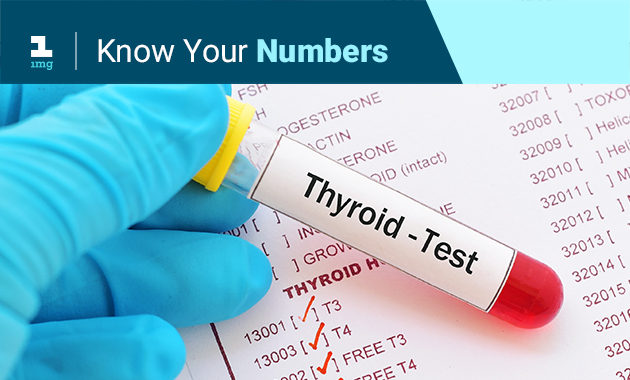
If you are feeling lethargic or anxious and have gained weight, your doctor might recommend a thyroid function test. These are a series of blood tests that are used to measure how the thyroid gland is functioning. Thyroid hormone affects a person’s physical energy, temperature, weight and mood.
An estimated 42 million people in India suffer from thyroid diseases, so it is important to get a thyroid function test, especially if you are in the high risk category. Women and old people are at a higher risk of hypothyroidism.
What are thyroid function tests?
The thyroid gland produces thyroid hormones — triiodothyronine (T3) and thyroxine T4) and a thyroid function test is recommended to assess the levels of these two hormones.
The thyroid panel (test package) also includes a test for thyroid stimulating hormone (TSH), which is produced by the pituitary gland. This hormone helps in regulating the hormones produced by the thyroid gland.
A TSH test is used to determine the underlying cause of abnormal thyroid hormone levels. It is also used to screen for an underactive or overactive thyroid gland.
Are you at risk of thyroid?
T4 and TSH tests are routinely performed on newborns to identify low-functioning thyroid gland. If you are 35 and above or have any risk factors of thyroid disease, it is advised to undergo a screening for thyroid every five years or as prescribed by your doctor.
In addition to high-risk groups, doctor’s may recommend thyroid screening for patients:
With a swollen neck (due to an enlarged thyroid gland).
Who have had surgery or radiation therapy, which might have affected the thyroid gland.
With Type 1 Diabetes Mellitus.
With family history of autoimmune thyroid disease.
With psychiatric disorders.
With Down’s or Turner Syndrome.
What is the normal range of T3, T4 and TSH?
T3: 100–200 nanograms per deciliter of blood (ng/dL)
T4: 4.5 – 11.2 micrograms per deciliter of blood (mcg/dL)
TSH: 0.4 – 5.0 milli-international units per liter (mIU/dL)
However, if you already have thyroid disease, then the normal range of TSH should be 0.5 – 3.0 milli-international units per liter.
Overnight fasting is required before undergoing the test. Also, if you are on steroids or taking oral contraceptives, inform your doctor about the same as it might interfere with the test reports.
Understanding the test results
Usually, T4 and TSH results are used to derive at a diagnosis. However, T3 can help if T4 and TSH suggest hyperthyroidism or if your thyroid levels are not elevated but you might be showing signs and symptoms of hyperthyroidism.
Patterns of thyroid function tests during an assessment of thyroid function are:
Normal thyroid (Euthyroid)
T3: Normal
T4: Normal
TSH: Normal
Overactive thyroid (hyperthyroidism)
T3: High
T4: High or normal
TSH: Low
Underactive thyroid (hypothyroidism)
T3: Normal or low
T4: Low
TSH: High
Thyroid tests next steps
If the test reports are normal, even then diet modifications such as vitamin and mineral supplements may be recommended by your doctor.
If the test report indicates a thyroid problem, your doctor might prescribe medicines. Moreover, your doctor may also advise a thyroid function test at regular intervals (generally once in three months) to monitor your condition.
Ensure you take the right dosage of medicines as per your doctor’s prescription.
In some cases, your doctor may order an ultrasound test or thyroid reuptake test, to test for structural problems with the gland, including cancer.
(The article is reviewed by Dr Neha Parakh, General Physician)
Recommended Reads:
Hypothyroidism: Are You Making These Common Mistakes With Your Medication?